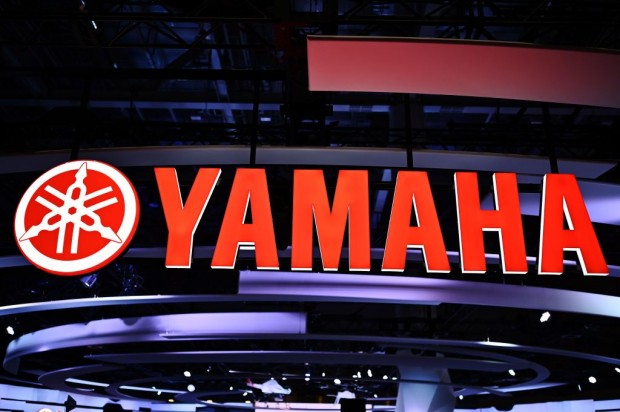Toyota partners with Yamaha Motor for the development of the 5.0-liter hydrogen-fueled V8 engine.
(Photo : CHARLY TRIBALLEAU/AFP via Getty Images)
Japanese auto giant Toyota has commissioned Yamaha Motor to develop a 5.0-liter hydrogen-fueled V8 engine for them. Yamaha Motor made the announcement toward the end of last week, with President Yoshihiro Hidaka stating that his company was committed to developing internal combustion engines in the future.
Yamaha said that the hydrogen-fueled V8 would be developed mainly for automobiles, with the 5.0-liter engine based on the one used by the Lexus RC F coupe. Yamaha did make some changes to this version, though, altering the V8's injectors and cylinder heads and injectors, among other things.
According to Yamaha, the company has worked on a hydrogen engine for vehicles for roughly five years now. They are proud of their latest product, with this unit capable of delivering as much as 450 horsepower at 6,800 revolutions per minute.
Yamaha Motor remains committed to combustion engines
As per Top Gear, Hidaka said that while Yamaha Motor aimed to achieve carbon neutrality by the year 2050, the company still has a strong passion for and commitment to the development of internal combustion engines. Hidaka believes hydrogen fuel holds the key in this endeavor, saying, "Hydrogen engines house the potential to be carbon-neutral while keeping our passion for the internal combustion engine alive at the same time."
The concept of hydrogen powering an internal combustion engine is not a new idea. Toyota has already used this notion before, developing a GR Yaris with a 1.6-liter internal combustion engine that uses hydrogen as its fuel. According to Toyota, the GR Yaris powertrain is similar to the one used by the hydrogen-powered Corolla Sport. The automaker labeled both vehicles as "experimental."
BMW has also tried this concept before, producing the Hydrogen 7 back in 2006. The German automaker used an internal combustion engine for the BMW Hydrogen 7 that relied on gasoline or liquid hydrogen for it to operate. BMW made a limited run for this vehicle.
Also Read: Huracan Supercars Recall: Lamborghini Blames Human Error That Affects Nearly 5,000 Units in the U.S.
What is hydrogen fuel cell technology?
It is important to mention that the method being developed by Toyota and Yamaha Motor right now with their V8 engine is different from hydrogen fuel cell technology. Toyota and Yamaha are using hydrogen to power an internal combustion engine, whereas hydrogen fuel cell technology gets its power from the electricity produced when hydrogen gas from a tank mixes with oxygen.
According to the U.S. Department of Energy's Alternative Fuels Data Center, fuel cell vehicles only emit water vapor and warm air. The same can't be said of hydrogen ICEs as they still produce emissions. Engine maker Cummins Inc. said hydrogen engines might release just trace amounts of CO2, but they can still produce nitrogen oxides.
The Alternative Fuels Data Center also said that hydrogen ICEs are "less efficient" than fuel cell electric vehicles. Hydrogen fuel cell vehicles may be the key to a greener future, but that does not mean the entire auto industry favors this technology. Those who voiced their opposition to fuel cells are Tesla CEO Elon Musk and Volkswagen Group CEO Herbert Diess.
Related Articles:
Tesla Hits New Milestone as Production of 4680 Battery Cells Reaches 1 Million Mark in January 2022
Lamborghini CEO Wants to Keep Internal Combustion Engines Alive Beyond 2030
See Now: OnePlus 6: How Different Will It Be From OnePlus 5?



























